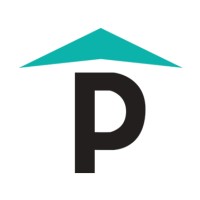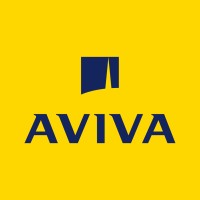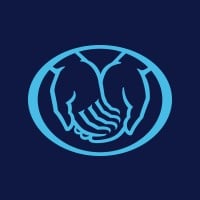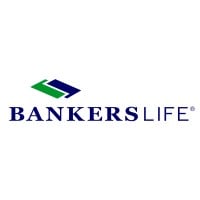
China Life Insurance Co.Ltd Company Cyber Security Posture
chinalife.com.cnChina Life Insurance (Group) Company, headquartered in Beijing, is a large state-owned financial and insurance company. Its predecessor,PICC was founded in 1949 and the PICC (Life) Co.,Ltd was set up in 1996 after its separation from the former PICC. In 1999, it was renamed China Life Insurance Company. With the approval of the State Council and the China Insurance Regulatory Commission, the former China Life Insurance Company was restructured as China Life Insurance (Group) Company in 2003. It has China Life Insurance Company Limited, China Life Asset Management Company Limited, China Life Property & Casualty Insurance Company Limited, China Life Pension Company Limited, China Life Ecommerce Company Limited, China Life Insurance (Overseas) Company Limited, China Life Investment Holding Company Limited and Insurance Professional College as its subsidiaries. Its business covers life insurance, property & casualty insurance, pension plans (corporate annuity), asset management, alternative investment, overseas operations and e-commerce. Through capital-links, it has invested in several banks, security firms and other non-financial institutions.
CLIC Company Details
china-life-insurance-co-ltd
42345 employees
47687.0
524
Insurance
chinalife.com.cn
Scan still pending
CHI_6022874
In-progress
Between 900 and 1000
This score is AI-generated and less favored by cyber insurers, who prefer the TPRM score.
 CLIC Global Score
CLIC Global Score.png)

China Life Insurance Co.Ltd Company Scoring based on AI Models
| Model Name | Date | Description | Current Score Difference | Score |
|---|---|---|---|---|
| AVERAGE-Industry | 03-12-2025 | This score represents the average cybersecurity rating of companies already scanned within the same industry. It provides a benchmark to compare an individual company's security posture against its industry peers. | N/A | Between 900 and 1000 |
China Life Insurance Co.Ltd Company Cyber Security News & History
| Entity | Type | Severity | Impact | Seen | Url ID | Details | View |
|---|
China Life Insurance Co.Ltd Company Subsidiaries

China Life Insurance (Group) Company, headquartered in Beijing, is a large state-owned financial and insurance company. Its predecessor,PICC was founded in 1949 and the PICC (Life) Co.,Ltd was set up in 1996 after its separation from the former PICC. In 1999, it was renamed China Life Insurance Company. With the approval of the State Council and the China Insurance Regulatory Commission, the former China Life Insurance Company was restructured as China Life Insurance (Group) Company in 2003. It has China Life Insurance Company Limited, China Life Asset Management Company Limited, China Life Property & Casualty Insurance Company Limited, China Life Pension Company Limited, China Life Ecommerce Company Limited, China Life Insurance (Overseas) Company Limited, China Life Investment Holding Company Limited and Insurance Professional College as its subsidiaries. Its business covers life insurance, property & casualty insurance, pension plans (corporate annuity), asset management, alternative investment, overseas operations and e-commerce. Through capital-links, it has invested in several banks, security firms and other non-financial institutions.
Access Data Using Our API

Get company history
.png)
CLIC Cyber Security News
Chubb introduces new insurance solution for APAC life science companies
Chubb has launched a new insurance product designed to provide casualty and cyber protection for life sciences companies across the APAC.
Insurance Industry Faces Rising Third-Party Cybersecurity Risks
The insurance industry is facing a mounting cybersecurity challenge, with a significant number of companies falling victim to data breaches.
Insurance firm Globe Life to warn 850,000 of potential data theft following extortion attempt
About 850,000 customers of insurance firm Globe Life are being warned of a data breach after the company told regulators about an extortion ...
Troubled US insurance giant hit by extortion after data leak
US insurance provider Globe Life, already grappling with legal troubles, now faces a fresh headache: an extortion attempt involving stolen ...
Meet our board of directors
Our experienced board of directors is dedicated to representing the best interests of our shareholders. They play a key role in shaping JLL's governance and ...
The biggest data breach fines, penalties, and settlements so far
The biggest data breach fines, penalties, and settlements so far · 1. Meta (Facebook) : $1.3 Billion · 2. Didi Global: $1.19 billion · 3. Amazon ...
MetLife insurance giant denies cyber 'incident' claimed by RansomHub gang
The RansomHub group is claiming to have breached MetLife in Latin America, posting the global insurance and benefits corporation on its dark ...
23andMe says it won permission from a judge to sell customers’ medical and ancestry data. Here’s how to delete yours
Bankrupt 23andMe will be allowed to sell customers' genetic data to other companies. The company claims its security measures surrounding ...
Falcon Risk Services launches new cyber insurance solution
The new solution's features include paying on behalf of cyber extortion, dependent business interruption extended to non-technology providers ...

CLIC Similar Companies

Pinnacle Surety
Surety bonds are required for various reasons. They ensure your construction project will be completed according to the contract terms and conditions as well as guarantee payment to all subcontractors and suppliers on the job. This is what we do best. Founded in 1994, Pinnacle Surety is a professio

Aviva
💛 We're a leading Insurance, Wealth & Retirement business. 📣 Follow for #LifeAtAviva. Aviva is nothing without our people. Living up to our purpose to be with you today for a better tomorrow applies to those we work with just as much as it does to our customers. We want Aviva to be a pla

Canada Life
At Canada Life, we’re focused on improving the financial, physical and mental well-being of Canadians. Whether handling policy claims, help growing and protecting clients’ retirement and investment savings, providing workplace mental health support for all employers or helping build stronger communi

Lockton
What makes Lockton stand apart is also what makes us better: independence. Our private ownership empowers our 12,500+ Associates doing business in over 140+ countries to focus solely on clients' risk and insurance needs. With expertise that reaches around the globe, we deliver the deep understanding

Allstate
At Allstate, we're advocates for peace of mind and a good life. And that comes through in everything we do. From building diverse and innovative teams that truly understand our customers' needs, to challenging each other to develop our careers in a meaningful way, and finally to the incredible res

Bankers Life
Bankers Life® focuses on the insurance and investment needs of middle-income Americans who are near or in retirement. The Bankers Life brand is part of CNO Financial Group, Inc. (NYSE: CNO), whose companies provide insurance and wealth management solutions that help protect the health and retirement

Frequently Asked Questions (FAQ) on Cybersecurity Incidents
CLIC CyberSecurity History Information
Total Incidents: According to Rankiteo, CLIC has faced 0 incidents in the past.
Incident Types: As of the current reporting period, CLIC has not encountered any cybersecurity incidents.
Total Financial Loss: The total financial loss from these incidents is estimated to be {total_financial_loss}.
Cybersecurity Posture: The company's overall cybersecurity posture is described as China Life Insurance (Group) Company, headquartered in Beijing, is a large state-owned financial and insurance company. Its predecessor,PICC was founded in 1949 and the PICC (Life) Co.,Ltd was set up in 1996 after its separation from the former PICC. In 1999, it was renamed China Life Insurance Company. With the approval of the State Council and the China Insurance Regulatory Commission, the former China Life Insurance Company was restructured as China Life Insurance (Group) Company in 2003. It has China Life Insurance Company Limited, China Life Asset Management Company Limited, China Life Property & Casualty Insurance Company Limited, China Life Pension Company Limited, China Life Ecommerce Company Limited, China Life Insurance (Overseas) Company Limited, China Life Investment Holding Company Limited and Insurance Professional College as its subsidiaries. Its business covers life insurance, property & casualty insurance, pension plans (corporate annuity), asset management, alternative investment, overseas operations and e-commerce. Through capital-links, it has invested in several banks, security firms and other non-financial institutions..
Detection and Response: The company detects and responds to cybersecurity incidents through {description_of_detection_and_response_process}.
Incident Details
Incident 1: Ransomware Attack
Title: {Incident_Title}
Description: {Brief_description_of_the_incident}
Date Detected: {Detection_Date}
Date Publicly Disclosed: {Disclosure_Date}
Date Resolved: {Resolution_Date}
Type: {Type_of_Attack}
Attack Vector: {Attack_Vector}
Vulnerability Exploited: {Vulnerability}
Threat Actor: {Threat_Actor}
Motivation: {Motivation}
Incident 2: Data Breach
Title: {Incident_Title}
Description: {Brief_description_of_the_incident}
Date Detected: {Detection_Date}
Date Publicly Disclosed: {Disclosure_Date}
Date Resolved: {Resolution_Date}
Type: {Type_of_Attack}
Attack Vector: {Attack_Vector}
Vulnerability Exploited: {Vulnerability}
Threat Actor: {Threat_Actor}
Motivation: {Motivation}
Common Attack Types: As of now, the company has not encountered any reported incidents involving common cyberattacks.
Identification of Attack Vectors: The company identifies the attack vectors used in incidents through {description_of_identification_process}.
Impact of the Incidents
Incident 1: Ransomware Attack
Financial Loss: {Financial_Loss}
Data Compromised: {Data_Compromised}
Systems Affected: {Systems_Affected}
Downtime: {Downtime}
Operational Impact: {Operational_Impact}
Conversion Rate Impact: {Conversion_Rate_Impact}
Revenue Loss: {Revenue_Loss}
Customer Complaints: {Customer_Complaints}
Brand Reputation Impact: {Brand_Reputation_Impact}
Legal Liabilities: {Legal_Liabilities}
Identity Theft Risk: {Identity_Theft_Risk}
Payment Information Risk: {Payment_Information_Risk}
Incident 2: Data Breach
Financial Loss: {Financial_Loss}
Data Compromised: {Data_Compromised}
Systems Affected: {Systems_Affected}
Downtime: {Downtime}
Operational Impact: {Operational_Impact}
Conversion Rate Impact: {Conversion_Rate_Impact}
Revenue Loss: {Revenue_Loss}
Customer Complaints: {Customer_Complaints}
Brand Reputation Impact: {Brand_Reputation_Impact}
Legal Liabilities: {Legal_Liabilities}
Identity Theft Risk: {Identity_Theft_Risk}
Payment Information Risk: {Payment_Information_Risk}
Average Financial Loss: The average financial loss per incident is {average_financial_loss}.
Commonly Compromised Data Types: The types of data most commonly compromised in incidents are {list_of_commonly_compromised_data_types}.
Incident 1: Ransomware Attack
Entity Name: {Entity_Name}
Entity Type: {Entity_Type}
Industry: {Industry}
Location: {Location}
Size: {Size}
Customers Affected: {Customers_Affected}
Incident 2: Data Breach
Entity Name: {Entity_Name}
Entity Type: {Entity_Type}
Industry: {Industry}
Location: {Location}
Size: {Size}
Customers Affected: {Customers_Affected}
Response to the Incidents
Incident 1: Ransomware Attack
Incident Response Plan Activated: {Yes/No}
Third Party Assistance: {Yes/No}
Law Enforcement Notified: {Yes/No}
Containment Measures: {Containment_Measures}
Remediation Measures: {Remediation_Measures}
Recovery Measures: {Recovery_Measures}
Communication Strategy: {Communication_Strategy}
Adaptive Behavioral WAF: {Adaptive_Behavioral_WAF}
On-Demand Scrubbing Services: {On_Demand_Scrubbing_Services}
Network Segmentation: {Network_Segmentation}
Enhanced Monitoring: {Enhanced_Monitoring}
Incident 2: Data Breach
Incident Response Plan Activated: {Yes/No}
Third Party Assistance: {Yes/No}
Law Enforcement Notified: {Yes/No}
Containment Measures: {Containment_Measures}
Remediation Measures: {Remediation_Measures}
Recovery Measures: {Recovery_Measures}
Communication Strategy: {Communication_Strategy}
Adaptive Behavioral WAF: {Adaptive_Behavioral_WAF}
On-Demand Scrubbing Services: {On_Demand_Scrubbing_Services}
Network Segmentation: {Network_Segmentation}
Enhanced Monitoring: {Enhanced_Monitoring}
Incident Response Plan: The company's incident response plan is described as {description_of_incident_response_plan}.
Third-Party Assistance: The company involves third-party assistance in incident response through {description_of_third_party_involvement}.
Data Breach Information
Incident 2: Data Breach
Type of Data Compromised: {Type_of_Data}
Number of Records Exposed: {Number_of_Records}
Sensitivity of Data: {Sensitivity_of_Data}
Data Exfiltration: {Yes/No}
Data Encryption: {Yes/No}
File Types Exposed: {File_Types}
Personally Identifiable Information: {Yes/No}
Prevention of Data Exfiltration: The company takes the following measures to prevent data exfiltration: {description_of_prevention_measures}.
Handling of PII Incidents: The company handles incidents involving personally identifiable information (PII) through {description_of_handling_process}.
Ransomware Information
Incident 1: Ransomware Attack
Ransom Demanded: {Ransom_Amount}
Ransom Paid: {Ransom_Paid}
Ransomware Strain: {Ransomware_Strain}
Data Encryption: {Yes/No}
Data Exfiltration: {Yes/No}
Ransom Payment Policy: The company's policy on paying ransoms in ransomware incidents is described as {description_of_ransom_payment_policy}.
Data Recovery from Ransomware: The company recovers data encrypted by ransomware through {description_of_data_recovery_process}.
Regulatory Compliance
Incident 1: Ransomware Attack
Regulations Violated: {Regulations_Violated}
Fines Imposed: {Fines_Imposed}
Legal Actions: {Legal_Actions}
Regulatory Notifications: {Regulatory_Notifications}
Incident 2: Data Breach
Regulations Violated: {Regulations_Violated}
Fines Imposed: {Fines_Imposed}
Legal Actions: {Legal_Actions}
Regulatory Notifications: {Regulatory_Notifications}
Regulatory Frameworks: The company complies with the following regulatory frameworks regarding cybersecurity: {list_of_regulatory_frameworks}.
Ensuring Regulatory Compliance: The company ensures compliance with regulatory requirements through {description_of_compliance_measures}.
Lessons Learned and Recommendations
Incident 1: Ransomware Attack
Lessons Learned: {Lessons_Learned}
Incident 2: Data Breach
Lessons Learned: {Lessons_Learned}
Incident 1: Ransomware Attack
Recommendations: {Recommendations}
Incident 2: Data Breach
Recommendations: {Recommendations}
Key Lessons Learned: The key lessons learned from past incidents are {list_of_key_lessons_learned}.
Implemented Recommendations: The company has implemented the following recommendations to improve cybersecurity: {list_of_implemented_recommendations}.
References
Additional Resources: Stakeholders can find additional resources on cybersecurity best practices at {list_of_additional_resources}.
Investigation Status
Incident 1: Ransomware Attack
Investigation Status: {Investigation_Status}
Incident 2: Data Breach
Investigation Status: {Investigation_Status}
Communication of Investigation Status: The company communicates the status of incident investigations to stakeholders through {description_of_communication_process}.
Stakeholder and Customer Advisories
Incident 1: Ransomware Attack
Stakeholder Advisories: {Stakeholder_Advisories}
Customer Advisories: {Customer_Advisories}
Incident 2: Data Breach
Stakeholder Advisories: {Stakeholder_Advisories}
Customer Advisories: {Customer_Advisories}
Advisories Provided: The company provides the following advisories to stakeholders and customers following an incident: {description_of_advisories_provided}.
Initial Access Broker
Incident 1: Ransomware Attack
Entry Point: {Entry_Point}
Reconnaissance Period: {Reconnaissance_Period}
Backdoors Established: {Backdoors_Established}
High Value Targets: {High_Value_Targets}
Data Sold on Dark Web: {Yes/No}
Incident 2: Data Breach
Entry Point: {Entry_Point}
Reconnaissance Period: {Reconnaissance_Period}
Backdoors Established: {Backdoors_Established}
High Value Targets: {High_Value_Targets}
Data Sold on Dark Web: {Yes/No}
Monitoring and Mitigation of Initial Access Brokers: The company monitors and mitigates the activities of initial access brokers through {description_of_monitoring_and_mitigation_measures}.
Post-Incident Analysis
Incident 1: Ransomware Attack
Root Causes: {Root_Causes}
Corrective Actions: {Corrective_Actions}
Incident 2: Data Breach
Root Causes: {Root_Causes}
Corrective Actions: {Corrective_Actions}
Post-Incident Analysis Process: The company's process for conducting post-incident analysis is described as {description_of_post_incident_analysis_process}.
Corrective Actions Taken: The company has taken the following corrective actions based on post-incident analysis: {list_of_corrective_actions_taken}.
Additional Questions
General Information
Ransom Payment History: The company has {paid/not_paid} ransoms in the past.
Last Ransom Demanded: The amount of the last ransom demanded was {last_ransom_amount}.
Last Attacking Group: The attacking group in the last incident was {last_attacking_group}.
Incident Details
Most Recent Incident Detected: The most recent incident detected was on {most_recent_incident_detected_date}.
Most Recent Incident Publicly Disclosed: The most recent incident publicly disclosed was on {most_recent_incident_publicly_disclosed_date}.
Most Recent Incident Resolved: The most recent incident resolved was on {most_recent_incident_resolved_date}.
Impact of the Incidents
Highest Financial Loss: The highest financial loss from an incident was {highest_financial_loss}.
Most Significant Data Compromised: The most significant data compromised in an incident was {most_significant_data_compromised}.
Most Significant System Affected: The most significant system affected in an incident was {most_significant_system_affected}.
Response to the Incidents
Third-Party Assistance in Most Recent Incident: The third-party assistance involved in the most recent incident was {third_party_assistance_in_most_recent_incident}.
Containment Measures in Most Recent Incident: The containment measures taken in the most recent incident were {containment_measures_in_most_recent_incident}.
Data Breach Information
Most Sensitive Data Compromised: The most sensitive data compromised in a breach was {most_sensitive_data_compromised}.
Number of Records Exposed: The number of records exposed in the most significant breach was {number_of_records_exposed}.
Ransomware Information
Highest Ransom Demanded: The highest ransom demanded in a ransomware incident was {highest_ransom_demanded}.
Highest Ransom Paid: The highest ransom paid in a ransomware incident was {highest_ransom_paid}.
Regulatory Compliance
Highest Fine Imposed: The highest fine imposed for a regulatory violation was {highest_fine_imposed}.
Most Significant Legal Action: The most significant legal action taken for a regulatory violation was {most_significant_legal_action}.
Lessons Learned and Recommendations
Most Significant Lesson Learned: The most significant lesson learned from past incidents was {most_significant_lesson_learned}.
Most Significant Recommendation Implemented: The most significant recommendation implemented to improve cybersecurity was {most_significant_recommendation_implemented}.
References
Most Recent Source: The most recent source of information about an incident is {most_recent_source}.
Most Recent URL for Additional Resources: The most recent URL for additional resources on cybersecurity best practices is {most_recent_url}.
Investigation Status
Current Status of Most Recent Investigation: The current status of the most recent investigation is {current_status_of_most_recent_investigation}.
Stakeholder and Customer Advisories
Most Recent Stakeholder Advisory: The most recent stakeholder advisory issued was {most_recent_stakeholder_advisory}.
Most Recent Customer Advisory: The most recent customer advisory issued was {most_recent_customer_advisory}.
Initial Access Broker
Most Recent Entry Point: The most recent entry point used by an initial access broker was {most_recent_entry_point}.
Most Recent Reconnaissance Period: The most recent reconnaissance period for an incident was {most_recent_reconnaissance_period}.
Post-Incident Analysis
Most Significant Root Cause: The most significant root cause identified in post-incident analysis was {most_significant_root_cause}.
Most Significant Corrective Action: The most significant corrective action taken based on post-incident analysis was {most_significant_corrective_action}.
What Do We Measure?
















Every week, Rankiteo analyzes billions of signals to give organizations a sharper, faster view of emerging risks. With deeper, more actionable intelligence at their fingertips, security teams can outpace threat actors, respond instantly to Zero-Day attacks, and dramatically shrink their risk exposure window.
These are some of the factors we use to calculate the overall score:
Identify exposed access points, detect misconfigured SSL certificates, and uncover vulnerabilities across the network infrastructure.
Gain visibility into the software components used within an organization to detect vulnerabilities, manage risk, and ensure supply chain security.
Monitor and manage all IT assets and their configurations to ensure accurate, real-time visibility across the company's technology environment.
Leverage real-time insights on active threats, malware campaigns, and emerging vulnerabilities to proactively defend against evolving cyberattacks.




